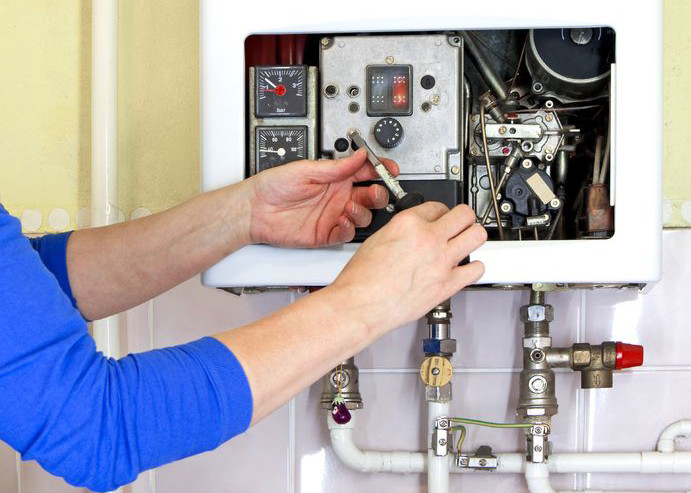When should you replace your water heater?
June 8, 2020The water heater is an essential element contributing to the comfort of the inhabitants of your accommodation. It is indeed at the heart of the delivery of domestic hot water to your home. But then, what is the lifespan of a water heater, and when to replace it?
Table of Contents
What does the life of a water heater depend on?
The life of the water heater generally revolves around ten years. However, its longevity also depends on several other parameters. This is the case with the model, use, water quality, lime content, or even maintenance.
Signs that it may be time to change your water heater
Certain warning signs are generally warning of a faulty water heater.
Less hot water
Cooler water means lower performance. The phenomenon is generally caused by a faulty thermostat. This can also be the case when the resistance of the water heater is scaled.
Hot water supply quickly depleted
Another warning sign is a supply of hot water that is quickly running out. For example, do you have less hot water than usual for your shower/bath? Then it may be time to replace your water heater.
However, it is advisable to check the frequent and usual character of this anomaly. A small reservation occurring only once is not necessarily alarming. If, on the other hand, the situation tends to deteriorate over time, your cumulus is probably defective.
Rust on the device
Do you notice the sudden or gradual appearance of rust on your device? Then your tank is undoubtedly damaged or in the process of becoming it. The presence of rust is due to a lack of protection, synonymous with poorly functioning anodes.
It is therefore important to carry out regular maintenance of your cumulus, especially when your water heater has a magnesium anode. The role of the anode is to protect your water heater from rust and oxidation.
Humidity on the device
An unmistakable sign is an apparent humidity on the outside wall of your cumulus. This humidity can then be a sign of a perforation in your tank. The heat and the accumulation of water at the base of your balloon will promote the formation of drops. In this case, you should be alert to any leak.
Water color change
Besides, the appearance of colored water from your taps should alert you. This colored water is indeed the result of the presence of rust in the tank. The water in permanent contact with the tank ends up adopting the colors of oxidation.
This rust is usually caused by an abnormality in the magnesium anode. Regular monitoring thus reduces the risk of tank deterioration.
Various anomalies, breakdowns
When you turn on the water tap, do you ever notice a noise? This anomaly is the consequence of difficulty for the balloon to properly convey the water.
This problem is also manifested by the rushing water supply. In both cases, tartar is usually the cause. A scaled fluid will clog the piping, obstructing the passage of water.
Excessive consumption on the invoice
Another anomaly, another problem, energy over consumption. Do you notice that your energy bill tends to increase? You should check all of your heating devices (boiler, hot water tank).
The lack of efficiency of your water heater will cause it to require more energy to operate. In such a case, seek the advice of a professional for troubleshooting.
How to choose your new water heater to optimize its lifespan?
A way to ensure a good life for the water heater is still the optimal choice for your new appliance. Firstly, you should opt for a water heater adapted to the hardness of the water in your region.
Take advantage of this interactive search tool from my private heating contractor. It allows you to find the ideal water heater based on the hardness of the water in your region. You will find devices suitable even for very aggressive water, with the possibility of installation by a professional.
Besides, you should opt for anti-corrosion and anti-lime technology suited to your needs. For example, a device with a titanium anode is suitable for very hard water. It is the same for the resistance (soapstone or armored).




This was beautiful Admin.hank you for your reflections.watch ard
This post post made me think. will write something about this on my blog. ave a nice day!! .Live TV
Thank you for great article. look forward to the continuation.-vox live jetzt
Good article with great ideas! Thank you for this important article.VEVOR 6.5L Manual Fluid Extractor Pump Oil Changer Vacuum Fluid Extractor Oil Extractor Change Pump for Automotive Oil Change
Thank you very much for this wonderful information. – hey dudes for men
This was beautiful Admin.hank you for your reflections.